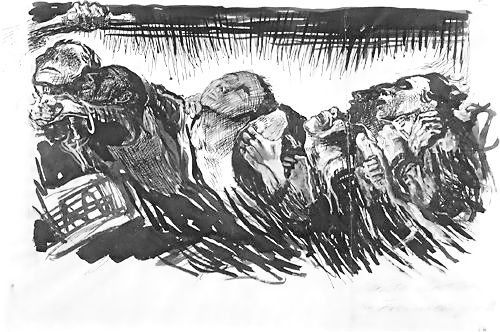By Steve DeAngelo in the Huffington Post March 27: American history shows over and over again that sometimes the only way to change an unjust law is to break it. Where would we be without the patriots of the Boston Tea Party, who knew that fidelity to American independence was more moral than obedience to British law? Where would our country be if nobody ever had the courage to break bad laws, and thereby force their change?
These are more than academic questions for me. For the past few weeks, the Boston Herald and other local mainstream media outlets have lambasted me as a “convicted felon,” and questioned the propriety of granting a medical cannabis dispensary license to an organization that has retained me as a strategic advisor.
In 2001 I was convicted of possession of cannabis with intent to distribute. At the time of my arrest in Maryland, just outside Washington, D.C. —and what recent Boston media reports failed to note— I was in possession of a medical cannabis recommendation written by a licensed M.D. I obtained the recommendation while doing activist work in California, where voters legalized medical marijuana in 1996.
I was sourcing medicine for myself and other patients, including my younger brother Andrew, whose vision is threatened by glaucoma. Two years prior, I and other activists had overwhelmingly passed an initiative that would have established non-profit medical cannabis dispensaries in D.C. But U.S. Congress stepped in and vetoed the measure.
Nobody pointed out that my activities would have been legal in a city just a few miles away if Congress had respected the will of the voters. And nobody described the patients who would have suffered or died without the medicine I was providing them. Nobody reported that after my arrest, I moved to California, where I created Harborside Health Center, today recognized far and wide as the gold standard for legally compliant cannabis distribution. Nothing was said about our flawless seven-year record of safety, professionalism and genuine non-profit operation. Or that we have brought the crime rates down in our neighborhood, introduced lab testing to the industry, created over 100 well-paying jobs with full benefits, and that Harborside has become the second largest retail tax payer in Oakland, Calif.
Instead, the phrase “convicted felon” has been waved about like a magical talisman, obliterating every other aspect of my life, and implying that I am unworthy of trust or decent company.
I am not alone. Millions and millions of otherwise productive and law-abiding Americans — disproportionally minorities — have been arrested for violating cannabis laws since it was made illegal in 1937. Some of them are still in prison or on probation, but most have already served their criminal sentences. Individually, they all face additional forms of ongoing punishment that will last the rest of their lives: denial of housing, employment, business and professional licenses, loans, credit cards, travel documents, organ transplants, welfare and educational benefits, purchase and possession of firearms, child custody and adoption, and dozens of other rights and privileges enjoyed by every other citizen.
As more and more states reform their cannabis laws, the population of Americans convicted for laws that have been repealed will climb into the tens of millions. If nothing is done to change their status, they will be turned into a permanent sub-class of semi-citizens, unable to access many rights and privileges available to other Americans. The exclusion of these millions of well-qualified people from employment, professional licensing and educational benefits will inevitably hurt society as a whole. And what is the moral basis to continue punishing people for violating a law that has been repealed?
What should society do when it recognizes it has been enforcing an unjust law, and what should happen to people who have been convicted for violating that law? Should their behavior be seen as a moral failure, or as a principled act of courage? Should they continue to be punished with denial of voting rights, employment, business opportunities, and other civil rights and privileges? Or should they be welcomed back to the American family?
Now that a majority of Americans live in states that have reformed cannabis laws, the only smart and decent thing to do is to fully restore the civil rights, privileges — and reputations — of those convicted during the years of prohibition. With the war on cannabis winding down, it’s time to build bridges of unity, not walls of separation.
Steve DeAngelo is Co-Founder and Executive Director of Harborside Health Center, a medical cannabis dispensary based in Oakland and San Jose, California.





